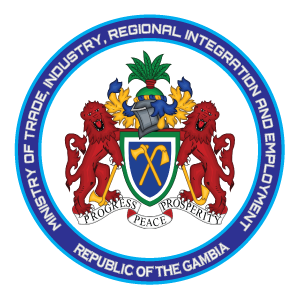By: Alieu Jallow
In recent times, the Ministry of Trade, Industry, Regional Integration, and Employment has been at the forefront of discussions regarding employment opportunities in Saudi Arabia and the United Arab Emirates. This has led to an influx of young Gambians flocking to the immigration department in search of passports.
However, the government’s bilateral agreement to pursue employment opportunities with Saudi Arabia has sparked concerns over the safety and welfare of Gambian women, amid longstanding allegations of human rights violations against migrant workers in the Gulf region.
Against this backdrop, the Permanent Secretary (PS), Lamin Dampha, has expressed the government’s commitment to safeguarding the interests of Gambian women venturing abroad for work in pursuit of economic stability. The Ministry has emphasized the need for robust protective measures.
“There is a legal provision saying that the Saudi government has a responsibility, such as ensuring the rights and welfare of workers are protected, which is one of the provisions. Additionally, there is a mechanism whereby domestic workers, if they are recruited, can lodge complaints whenever their rights are violated. This is the first time we have such a provision,” he stated.
Mr. Dampha further elaborated that the Ministry is working diligently to negotiate terms that will ensure the protection of women’s rights and dignity within the framework of the proposed agreement. He also noted that a hotline service will be available for workers to report complaints.
“There is a hotline, so if you are being abused anywhere, you can report it. The moment you report, there will be an immediate response—either the police moving in to investigate the violations or taking measures to protect you. The government of The Gambia will also monitor the situation through our embassy. Any reported abuse will prompt the government to take steps based on the agreement we have with the Saudi government.”
Historically, reports from various human rights organizations have documented unsettling accounts of exploitation, abuse, and violations faced by migrant workers, particularly women, in Saudi Arabia. These narratives have heightened scrutiny and skepticism around any agreements with the Saudi government. While the initiative promises potential economic benefits for numerous families in The Gambia, the responsibility to ensure a safe and equitable working environment abroad cannot be overstated.
The question now is: Will PS Dampha’s assurances provide relief, or will the narrative change shortly after the first batch of migrant workers sets foot on Saudi soil?




